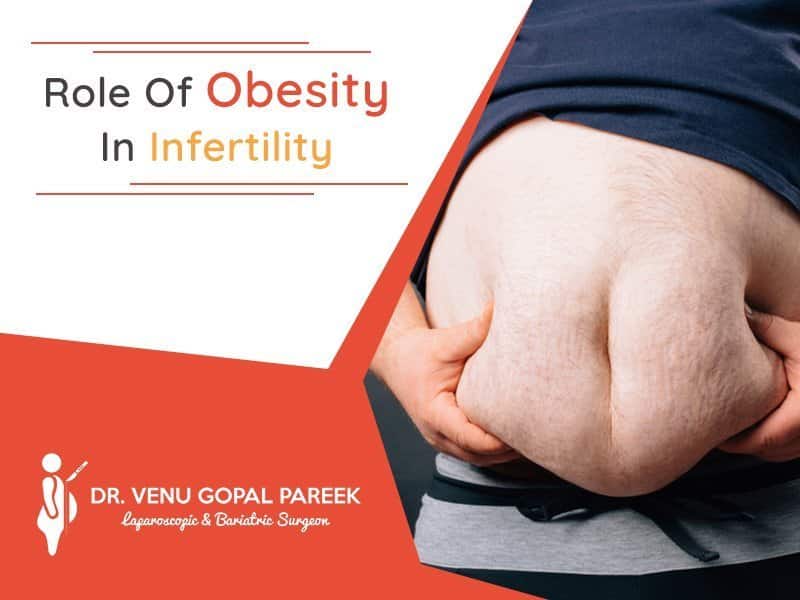
Role Of Obesity In Infertility
The prevalence of overweight and obesity are increasing with time and become an epidemic worldwide. We know overweight is associated with many adverse health consequences. But now we need to understand that it has become a growing concern as it also affects our fertility. It became one of the most common known risk factors for infertility in both men and women.
It is difficult to explain the mechanism of how obesity actually affects our reproductive system because it is complicated and multifactorial. There were several mechanisms that are involved in the relation between fertility and obesity.
However, let’s discuss some major consequences of obesity and infertility in both men and women
Women with Obesity and Infertility
Many studies stated that women with excess weight or obesity facing more difficulties to become pregnant than normal-weight women. Even though if pregnancy occurs, they are at a higher risk to lose the pregnancy.
This is because the hormones that are involved in the reproductive system are affected due to overweight. Usually, a fine hormonal balance controls the menstrual cycle.

The abnormal hormone signals due to excess weight, negatively affect ovulation and sperm production. In women, obesity leads to overproduction of insulin, which may result in irregular ovulation. There is also a close relationship between obesity, excess production of insulin and the infertility condition which is known as a polycystic ovarian syndrome (PCOS).
PCOS is a precise medical condition which is associated with abnormal menstrual cycles, anovulation (decreased or stopped ovulation), obesity and high levels of male hormones. Obesity condition in PCOS increases the hormonal and metabolic decline which leads to damage of fertility and oocyte quality in women. PCOS may also show its effects even after conception through ART (assisted reproductive technology) in obese patients which increase the risk of miscarriage rates.
Men with Obesity and Infertility
Obesity does not solely affect women’s fertility though. Recent studies state that men with excess weight or obesity are more likely to be infertile than normal-weight men. According to NIEHS an increase of 10kg extra weight of a man might increase the risk of infertility by nearly 10 per cent.
Obesity causes hormone irregularities in men which affects the stimulation of the testicles that inhibit the production of sperm. Actually, excess fat converts male hormone, testosterone into estrogen, and those high estrogen levels decrease the stimulation testicle.
Researchers of Reproductive Biology Associates says that a high BMI in men is associated with reduced testosterone levels. The study revealed overweight men have 24% lower testosterone levels than normal-weight men and obese men have 26% lower testosterone levels. Typically men with high BMI are found to have an abnormal semen analysis as well.

So, excess body fat also affects the gonadotropin-releasing hormone (GnRH) production, which is necessary to natural ovulation in women, and sperm production in men. Precisely, GnRH also triggers the release of LH – luteinizing hormone and FSH – a Follicle-Stimulating Hormone that plays a crucial role in the development of eggs and sperm.
Studies show that weight-loss is extremely valuable and also helps in the management of successful full-term pregnancies. Weight loss can enhance your fertility. For more information contact us and get the best solution for infertility due to excess weight.
About the Doctor:
Dr Venugopal Pareek – Bariatric Surgeon

Dr Venugopal Pareek is one of the best Laparoscopic and Bariatric Surgeon in the city has done more than 9000 surgeries in 12 years. Trained in the esteemed Nizam’s Institute of Medical Sciences in Surgical Oncology, Dr Pareek has the expertise in Bariatric Surgery. He has attended several conferences and published articles on medicine as well in various national and international journals.






